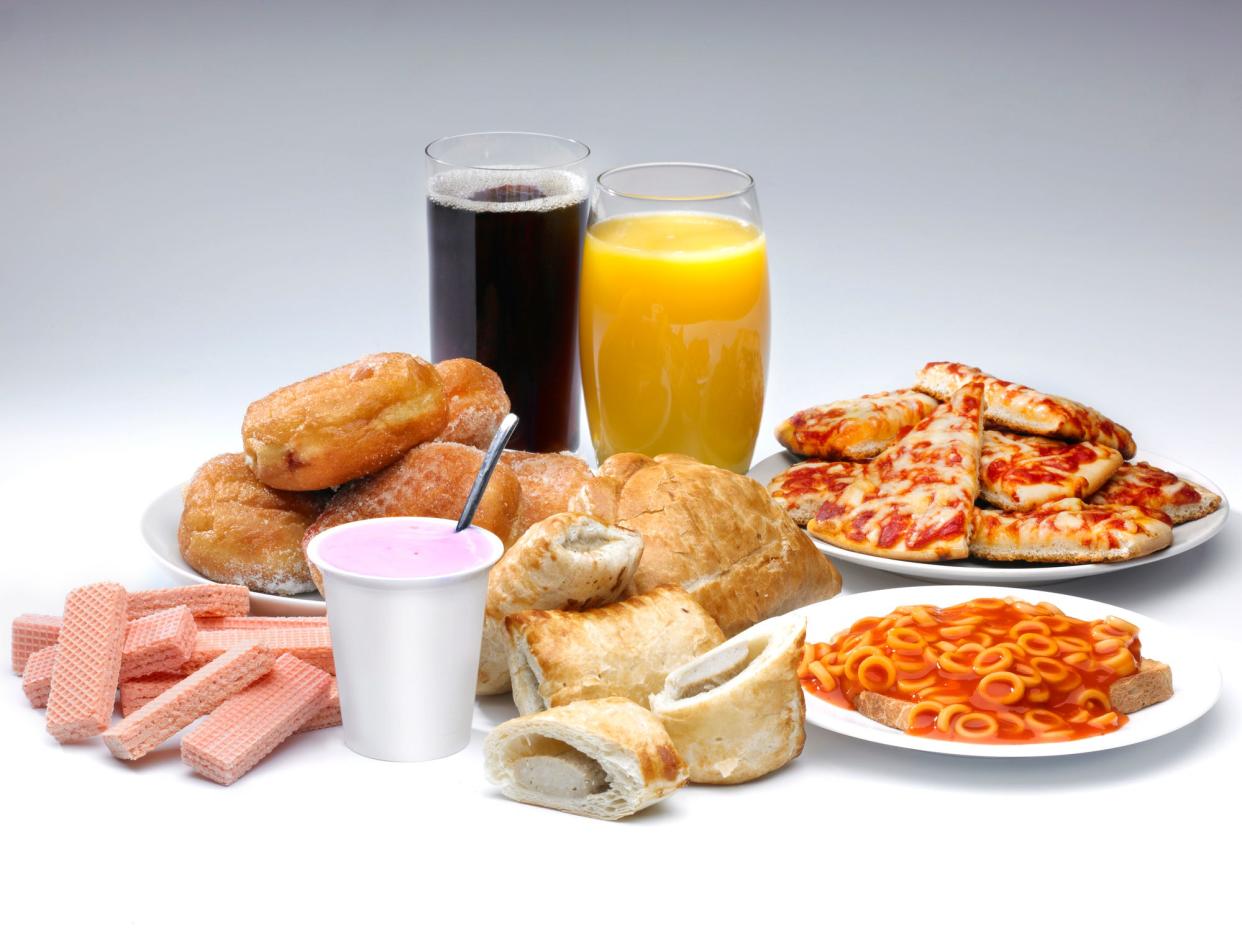Nutrition for Today: Consuming ultra-processed foods can lead to negative health consequences

Do you find it impossible to eat just one potato chip or just one slice of frozen pizza? Most people do.
There’s a reason for that. It has to do with the addictive quality of ultra-processed foods (UPFs).
Ultra-processed foods are typically high in fat, refined carbohydrates, sugar and salt.
They are loaded with additives and preservatives. They have little or no nutritional value.
Examples of UPFs include packaged bread, most breakfast cereals, sugary drinks, instant soups, frozen pizza, hot dogs, chicken nuggets, condiments and sauces, candy, cookies, ice cream, flavored yogurt, pastries, chocolate, noodles, sauces and fast foods.
Susie's previous columns:
Miracle drug? Weight loss ingredient Semaglutide, found in Ozempic, Wegovy, Rybelsus
Not feeling all that great? Many factors can lead to bloating. Here are some issues and solutions
Is it your diet? Your diet can influence your likelihood of developing breast cancer
It is estimated that the typical person consumes 58% of their total daily calories in the form of UPFs.
Are these foods addictive? Maybe. Probably.
Food manufacturers engineer processed foods to be highly palatable and intensely flavored. These activate the reward and pleasure sensors in the brain. This response is very similar to that which occurs in substance abuse.
When researchers used guidelines for evaluating response to substance abuse, they found UPFs elicited the same responses in humans.
When we eat UPFs we get a spike in the brain chemical dopamine. Dopamine is the “feel good chemical” in the brain. After the dopamine spike occurs, it is followed by an equally intense crash. We then crave that good feeling again, so we seek out more UPFs.
This is very much like what happens when we consume nicotine, alcohol and drugs.
In fact, some studies show UPFs are as addictive as drugs.
Certain combinations are especially hyper-palatable. These include fat plus sugar (ice cream, doughnuts, cookies, etc.), fat plus salt (pizza, sausage bacon, etc.), and refined carbs plus salt (chips, crackers, pretzels, etc.).
Aside from the potentially addictive quality of UPFs, there are many health consequences associated with eating these foods.
Overconsumption of UPFs has been associated with a number of health issues. They are linked to the development of type 2 diabetes, high blood pressure, non-alcoholic fatty liver disease, cardiovascular disease, breast cancer, colorectal cancer, Crohn’s disease and kidney disease.
Another area of concern is the effect on gut health. UPFs lack nutrients essential for health, and they typically don’t contain fiber. This negatively affects the balance of gut microbiota, leading to digestive disorders and a weakened immune system.
UPFs impact mental health by increasing risk of anxiety and depression. They affect the balance of brain chemicals, affecting mood, energy, motivation and overall mental well-being. They are linked to cognitive decline and dementia.
Consumption of UPFs significantly increases the risk of obesity. Not only are these foods typically much higher in calories than unprocessed foods, but they aren’t as satisfying, which leads to over-consumption.
Studies show that when people are given a diet consisting of mostly UPFs, compared to those who ate mostly unprocessed foods, they eat about 500 more calories per day.
After eating a UPF diet for two weeks, the average participant gained two pounds. Those who ate the unprocessed diet lost two pounds.
The bottom line here is that UPFs aren’t really food. These products are so far removed from their food of origin that they don’t even come close to resembling the food they’re derived from.
For example, a corn chip looks nothing like an ear of corn. A potato chip doesn’t look like a potato.
Just to provide a comparison, let’s look at the difference between a doughnut and a baked potato. They both contain about 200-250 calories.
The doughnut is made from wheat but doesn’t look anything like a wheat stalk. After harvesting, the wheat has been refined (the fiber and nutrients removed), it’s been ground up, and combined with all kinds of additives and preservatives including fat, sugar and salt, and shaped into a circle with a hole in the middle. And likely some additional fat and sugar have been added in the form of icing on top.
By comparison, the baked potato is completely unrefined and unaltered. It looks exactly like it looked when it came out of the ground. Nothing added, nothing changed.
Now, think about how you feel after eating a doughnut compared to a baked potato. Are you satisfied and full after eating one doughnut? Probably not. In fact, most people would go on to eat two or three before they felt full.
After you eat a whole baked potato, you actually feel the sensation of satiety. You’re probably not compelled to eat two or three more. Right?
So that’s the difference between how your body responds to a processed food versus an unprocessed food.
It is crucial that we shift toward the consumption of more whole unprocessed foods to combat these health risks and pave the way for better health, well-being and longevity.
Susie Bond is a Registered and Licensed Dietitian/Nutritionist in private practice. Contact her at [email protected]
This article originally appeared on Florida Today: Ultra-processed foods can be as addictive, harmful as illegal drugs
